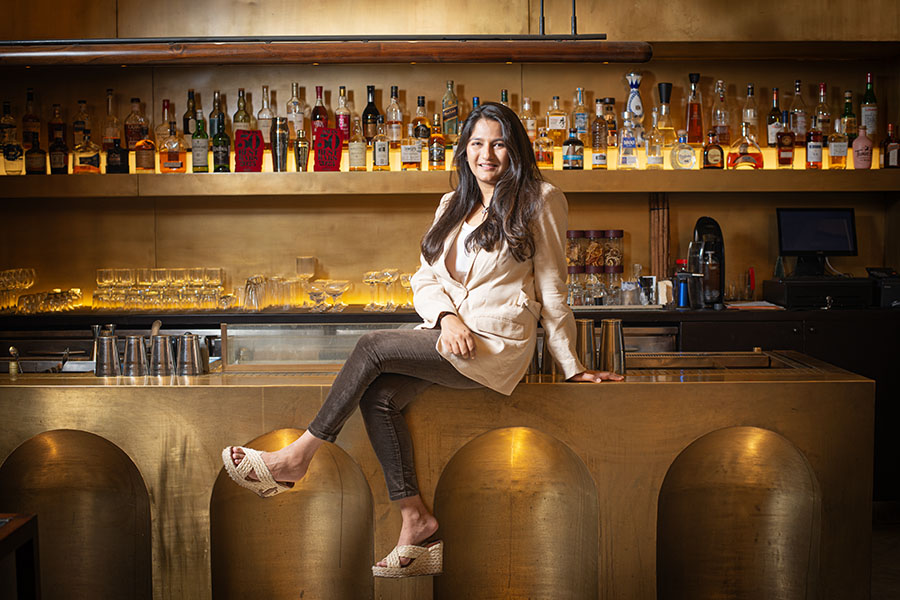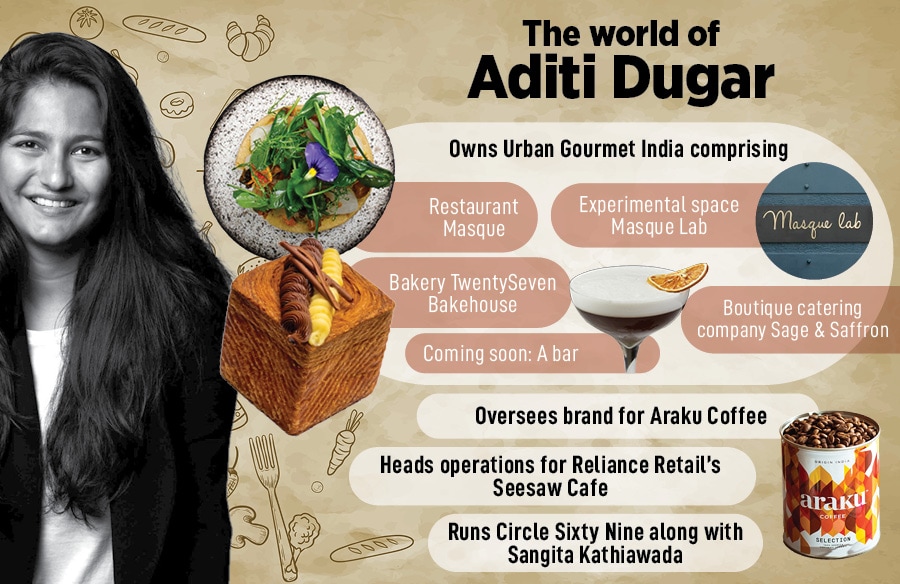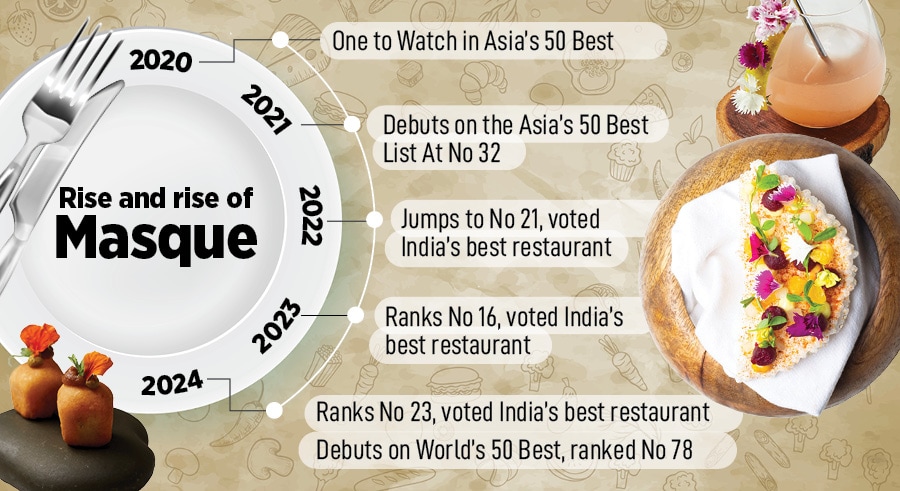Aditi Dugar: Cooking up a storm
The accidental entrepreneur's fine-dining space Masque, in Mumbai, has been voted as India's No 1 restaurant thrice over; this year, it debuted on the World's 50 Best Restaurants list at No 78
 Aditi Dugar is the founder of Masque, a restaurant in Mumbai that has skyrocketed to the ranks of Asia's Top 50 Restaurants.
Image: Bajirao Pawar for Forbes India
Aditi Dugar is the founder of Masque, a restaurant in Mumbai that has skyrocketed to the ranks of Asia's Top 50 Restaurants.
Image: Bajirao Pawar for Forbes India
For a year since 2016, when Aditi Dugar launched Masque, a fine-dining restaurant in Mumbai’s Mahalaxmi area, her father-in-law wouldn’t come in to dine. Dugar was born into a Jain family and married into another, where tradition mandated a strictly vegetarian diet. While the 41-year-old adhered to it (and still does), her restaurant served a robust non-vegetarian menu that would often include zany elements like rabbit and ant, and Dugar Sr registered his disapproval by staying away. “Our families took some convincing but now they’re our proudest patrons,” says Dugar. “My father-in-law dines here often and brings every guest who comes to visit him in Mumbai.”
In many ways, Masque’s eight-year journey is symptomatic of Dugar’s—of bucking the trend. Among the first restaurants in Mumbai to offer a tasting menu—a multi-course fare of bite-sized portions—it first stirred global conversation in 2020, when it was named as the ‘One To Watch’ in Asia’s 50 Best Restaurants list. The very next year, it took a Himalayan leap, debuting on the list at No 32 as India’s second-best restaurant after Indian Accent (at No 18).
For three consecutive years thereafter, Masque has upstaged Indian Accent to be voted as India’s best restaurant in Asia’s 50 Best list. But its biggest headline-grabbing feat came a few days ago, when it made it to the extended World’s 50 Best Restaurants list. At No 78, Masque is the only Indian restaurant to have made it to the list, along with Indian Accent (at No 89). This despite a change of guard, as head chef Prateek Sadhu—he had been with the restaurant since inception, and parted ways in 2022—made way for former commis Varun Totlani. Masque’s 10-course degustation menu, priced at Rs 5,200 plus taxes per person, has been cited by Asia’s 50 Best as “one of India’s most forward-thinking fine-dining restaurants” and that “shows off the wealth of India’s produce”—forging a melange of, say, cacao and gondhoraj, or strawberry and ponkh.
Through its journey, Masque has also collaborated with award-winning global chefs, like Matt Orlando of Copenhagen’s Amass and Daniel Humm, the pathbreaking owner and chef of Eleven Madison Park. Says Humm, whose restaurant in New York is frequented by the high society: “Aditi has created a gem of a restaurant in Mumbai. I’ve visited Masque multiple times, and each time it’s evolved and gotten better and better. It’s a testament to her leadership, competitiveness and pushing the boundaries.”
Meanwhile, Urban Gourmet India Pvt Ltd (UGIPL), its parent company—which houses Masque as the flagship property, experimental space Masque Lab, Dugar’s boutique catering company Sage & Saffron, bakery TwentySeven Bakehouse, Circle Sixty Nine, a 32-seater bistro at a private arts and culture space (a shared IP along with Sangita Kathiawada)—has nearly quadrupled revenues from Rs 5.16 crore in FY18 to Rs 19.63 crore in FY23, and registered profits for two years running, closing FY23 at Rs 1.21 crore (according to financial database Tofler). A new addition to the Masque universe is a bar that’s coming up soon in the same mill complex—“it’s under wraps now, but all I can tell you is it’s my husband Aditya’s baby”, she says.



















